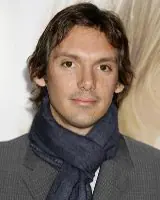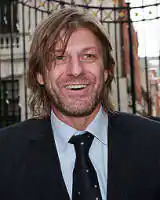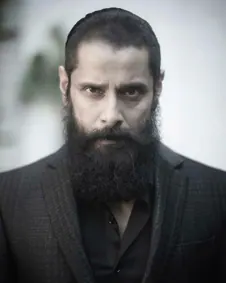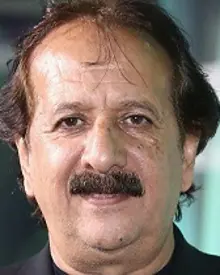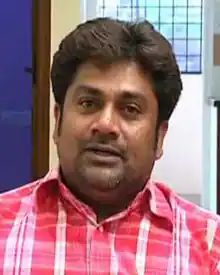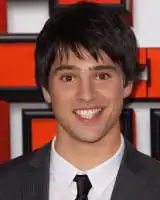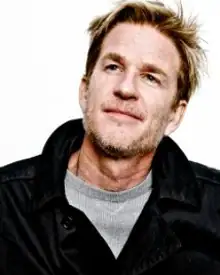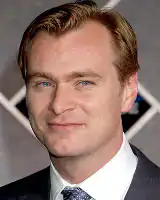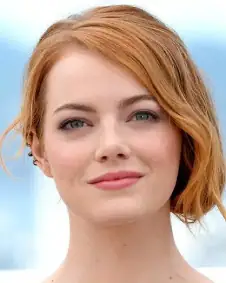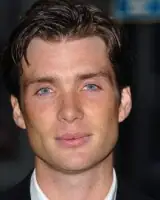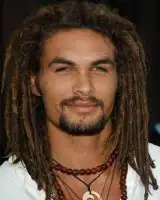X
James Newton Howard
Music Director
James Newton Howard Biography
James Newton Howard born on June 9, 1951. He is an American film score composer, orchestrator and music producer.
Early life and career:
Howard was born in Los Angeles, California. Throughout his career as a composer/musician/songwriter, he has scored films of all scales and genres, earning multiple award nominations for his work. Howard began studying music as a child and went on to attend the Thacher School in Ojai, California, the Music Academy of the West in Santa Barbara, California, and then majored in piano performance at the University of Southern California. After Howard left college, he toured with Elton John as a keyboardist during the late 1970s and early 1980s (he was part of the band that played behind John in Central Park, New York, on Sept. 13, 1980). Howard also arranged strings for several of Elton's songs during this period including on the hits "Don't Go Breaking My Heart" and "Sorry Seems To Be The Hardest Word", as well as playing additional keyboards and synthesizers on several of Elton's studio albums, including "Rock of The Westies" (1975), "Blue Moves" (1976), "21 At 33" (1980), and "The Fox" (1981). After his tenure with John, Howard toured briefly with Crosby, Stills and Nash before moving into film music in the mid-1980s. Howard did, however, return for a brief collaboration with Elton John on the final night of John's Australia tour in December 1987. Howard conducted both his own and Paul Buckmaster's arrangements during second half of the set, which focused on orchestrated performances of selected songs from John's catalog. (Interestingly, most of Howard's film scores are conducted by others.) After his father died, Howard learned from his grandfather that his family was Jewish.
1990s:
Howard scored the surprise blockbuster romantic comedy Pretty Woman (1990) and received his first Academy Award nomination for his score for Barbra Streisand's drama The Prince of Tides (1991). Setting the musical mood for numerous films throughout the decade, Howard's skills encompassed a plethora of genres, including four more best original score Oscar nominations, for the Harrison Ford action feature The Fugitive (1993), the Julia Roberts romantic comedy My Best Friend's Wedding (1997), M. Night Shyamalan's The Village (2004) and most recently, Michael Clayton (2007). In addition, Howard scored the Western epic Wyatt Earp (1994), Kevin Costner's Waterworld (1995), and Primal Fear (1996). His collaborations on tunes for One Fine Day (1996) and Junior (1994) garnered Best Song nods. Along with scoring such smaller, character-driven films as Five Corners (1988), Glengarry Glen Ross (1992), and American Heart (1993), Howard proved equally skilled at composing for big-budget Hollywood spectacles, including Space Jam (1996), Dante's Peak (1997) (theme only - score was composed by John Frizzell), and Collateral (2004). He has also scored three Disney feature films which are Dinosaur (2000), Treasure Planet and Atlantis: The Lost Empire. Though he concentrated primarily on films, Howard has also contributed music for TV series, earning an Emmy nomination in 1995 for his theme to NBC's ratings smash ER (Howard also scored the two-hour pilot); he also provided the themes for The Sentinel and Gideon's Crossing, winning an Emmy for the latter. He has scored all of Shyamalan's suspense thrillers, The Sixth Sense (1999), Unbreakable (2000), Signs (2002), The Village (2004), Lady in the Water (2006), and The Happening (2008), notably dropping the intense, yet subtle, opening credit music for The Sixth Sense from the corresponding soundtrack album.
2000s
Howard is now one of the most recognized composers for film. On October 14, 2005, it was officially announced that James Newton Howard would replace Howard Shore as composer for King Kong, due to "differing creative aspirations for the score" between Shore and director Peter Jackson. The resultant score earned Howard his first Golden Globe nomination for Best Original Score. His work on Michael Clayton earned him an Oscar nomination. He followed in 2008 with his eighth Oscar nomination for Edward Zwick's Defiance. He also collaborated with Hans Zimmer on the scores for Batman Begins and its record-breaking sequel The Dark Knight.
Some of his most recent works are The Happening, his sixth film with M. Night Shyamalan, Blood Diamond, Michael Clayton, The Water Horse, I Am Legend, Charlie Wilson's War, and the M. Night Shyamalan movie adaptation of the Nickelodeon series "Avatar: the Last Airbender." Additionally, in a radio interview from early 2008, Howard revealed that he would collaborate with Terrence Malick "in about a year," a project likely to be the director's upcoming Tree of Life (2010). However, it was later revealed that Alexandre Desplat will provide the score. Howard debuted his work for symphony orchestra, I Would Plant A Tree, in February 2009 as part of the Pacific Symphony's annual American Composers Festival. The debut took place at the Renee and Henry Segerstrom Concert Hall in Costa Mesa, California, with the Symphony under the direction of Carl St.Clair. In 2009, he was awarded a Grammy along with Hans Zimmer for the soundtrack to The Dark Knight. After being replaced in later seasons, his original theme song for the hit TV show ER returned for the final episode of the series. In September 2010 he was appointed visiting professor of media composition at the Royal Academy of Music in London.
Early life and career:
Howard was born in Los Angeles, California. Throughout his career as a composer/musician/songwriter, he has scored films of all scales and genres, earning multiple award nominations for his work. Howard began studying music as a child and went on to attend the Thacher School in Ojai, California, the Music Academy of the West in Santa Barbara, California, and then majored in piano performance at the University of Southern California. After Howard left college, he toured with Elton John as a keyboardist during the late 1970s and early 1980s (he was part of the band that played behind John in Central Park, New York, on Sept. 13, 1980). Howard also arranged strings for several of Elton's songs during this period including on the hits "Don't Go Breaking My Heart" and "Sorry Seems To Be The Hardest Word", as well as playing additional keyboards and synthesizers on several of Elton's studio albums, including "Rock of The Westies" (1975), "Blue Moves" (1976), "21 At 33" (1980), and "The Fox" (1981). After his tenure with John, Howard toured briefly with Crosby, Stills and Nash before moving into film music in the mid-1980s. Howard did, however, return for a brief collaboration with Elton John on the final night of John's Australia tour in December 1987. Howard conducted both his own and Paul Buckmaster's arrangements during second half of the set, which focused on orchestrated performances of selected songs from John's catalog. (Interestingly, most of Howard's film scores are conducted by others.) After his father died, Howard learned from his grandfather that his family was Jewish.
1990s:
Howard scored the surprise blockbuster romantic comedy Pretty Woman (1990) and received his first Academy Award nomination for his score for Barbra Streisand's drama The Prince of Tides (1991). Setting the musical mood for numerous films throughout the decade, Howard's skills encompassed a plethora of genres, including four more best original score Oscar nominations, for the Harrison Ford action feature The Fugitive (1993), the Julia Roberts romantic comedy My Best Friend's Wedding (1997), M. Night Shyamalan's The Village (2004) and most recently, Michael Clayton (2007). In addition, Howard scored the Western epic Wyatt Earp (1994), Kevin Costner's Waterworld (1995), and Primal Fear (1996). His collaborations on tunes for One Fine Day (1996) and Junior (1994) garnered Best Song nods. Along with scoring such smaller, character-driven films as Five Corners (1988), Glengarry Glen Ross (1992), and American Heart (1993), Howard proved equally skilled at composing for big-budget Hollywood spectacles, including Space Jam (1996), Dante's Peak (1997) (theme only - score was composed by John Frizzell), and Collateral (2004). He has also scored three Disney feature films which are Dinosaur (2000), Treasure Planet and Atlantis: The Lost Empire. Though he concentrated primarily on films, Howard has also contributed music for TV series, earning an Emmy nomination in 1995 for his theme to NBC's ratings smash ER (Howard also scored the two-hour pilot); he also provided the themes for The Sentinel and Gideon's Crossing, winning an Emmy for the latter. He has scored all of Shyamalan's suspense thrillers, The Sixth Sense (1999), Unbreakable (2000), Signs (2002), The Village (2004), Lady in the Water (2006), and The Happening (2008), notably dropping the intense, yet subtle, opening credit music for The Sixth Sense from the corresponding soundtrack album.
2000s
Howard is now one of the most recognized composers for film. On October 14, 2005, it was officially announced that James Newton Howard would replace Howard Shore as composer for King Kong, due to "differing creative aspirations for the score" between Shore and director Peter Jackson. The resultant score earned Howard his first Golden Globe nomination for Best Original Score. His work on Michael Clayton earned him an Oscar nomination. He followed in 2008 with his eighth Oscar nomination for Edward Zwick's Defiance. He also collaborated with Hans Zimmer on the scores for Batman Begins and its record-breaking sequel The Dark Knight.
Some of his most recent works are The Happening, his sixth film with M. Night Shyamalan, Blood Diamond, Michael Clayton, The Water Horse, I Am Legend, Charlie Wilson's War, and the M. Night Shyamalan movie adaptation of the Nickelodeon series "Avatar: the Last Airbender." Additionally, in a radio interview from early 2008, Howard revealed that he would collaborate with Terrence Malick "in about a year," a project likely to be the director's upcoming Tree of Life (2010). However, it was later revealed that Alexandre Desplat will provide the score. Howard debuted his work for symphony orchestra, I Would Plant A Tree, in February 2009 as part of the Pacific Symphony's annual American Composers Festival. The debut took place at the Renee and Henry Segerstrom Concert Hall in Costa Mesa, California, with the Symphony under the direction of Carl St.Clair. In 2009, he was awarded a Grammy along with Hans Zimmer for the soundtrack to The Dark Knight. After being replaced in later seasons, his original theme song for the hit TV show ER returned for the final episode of the series. In September 2010 he was appointed visiting professor of media composition at the Royal Academy of Music in London.
Celeb Birthdays
-
Lukas Haas Apr 16
-
Sean Bean Apr 17
-
Vikram Apr 17
-
Sunaina Apr 17
-
Majid Majidi Apr 17
-
Rangayana Raghu Apr 17
-
Nicholas D Agosto Apr 17
Enable




 Click it and Unblock the Notifications
Click it and Unblock the Notifications



